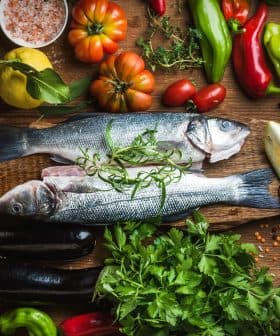Monounsaturated Fat Linked to Fatty Liver Disease
New research out of the University of California, San Francisco has found that a monounsaturated fat may be associated with fatty liver disease. The study examined the livers and fat of mice that were fed different diets.
New research from the University of California, San Francisco found that mice fed a diet high in starch and monounsaturated fatty acid developed fatty liver disease. Lead author Caroline Duwaerts emphasized the importance of maintaining a balanced diet with appropriate proportions of fats and carbohydrates to avoid potential health risks associated with certain dietary components.
New research out of the University of California, San Francisco has found that a monounsaturated fat may be associated with fatty liver disease.
The study observed groups of mice that were fed different diets. Afterward, the livers and adipose tissue, or fat, of the mice were examined.
It’s really a question of proportion of your fats and carbohydrates in your overall diet.
“We fed mice with four different diets for up to six months,” lead author Caroline Duwaerts told Olive Oil Times. “The four different diets were very specific in their components. They either had simple sugar or sucrose, or they had a complex sugar or starch accompanied with either a saturated fat, palmitate, or an unsaturated fat, oleate.”
The researchers found mice that ingested starch and the monounsaturated fatty acid developed fatty liver disease.
“The mice who had been fed oleate and starch had much fattier and diseased livers, and had also lost the most adipose weight due to cell death,” Duwaerts said.
“Something in the oleate is causing extreme lypolysis in the adipose, which is then shuttling the fat to the liver. That’s why these livers are much fattier and diseased.”
Monounsaturated fats are commonly thought to help lower cholesterol levels when used in place of saturated fats. They can be found in oils such as olive oil, peanut oil and canola oil, along with avocados and some nuts and seeds.
Some of these ingredients are staples of the Mediterranean diet, but Duwaerts argues potential health effects have more to do with the amount you consume. In a previous study where mice were fed diets with a lower concentration of fat the results were not the same.
“It’s really a question of proportion of your fats and carbohydrates in your overall diet,” she said. “If you were to eat pasta with olive oil, and that’s all you ate, it might be too much for your system to handle. If you sprinkled a little bit of olive oil on a salad you’re probably keeping your proteins much higher and your carbohydrates much lower. You’re also probably not as much at risk than if you’re eating a Western diet with a lot of carbohydrates and fats. In that situation, oleate and starch are bad for you.”
She added: “The Mediterranean diet is also about including the good fats. That’s why they have a lot of fish. Those are for your omega‑3 and omega‑6 fatty acids. It’s more balanced than what the Western population is eating.”
Duwaerts believes people need to keep better tabs on what they’re putting in their bodies.
“I think what the public truly needs to be aware of is their proportions of what they’re eating and how much of each type of nutrient is being consumed and what type of each,” she said.
“The old saying doctors used that a little bit of everything is good for you, I think there’s something to that.”









